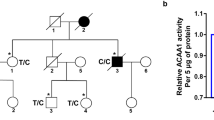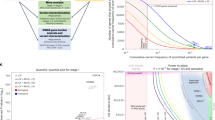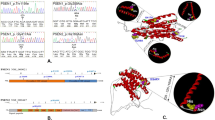Abstract
alzheimer's disease (ad) is a disorder characterised by a progressive deterioration in memory and other cognitive functions. glycogen synthase kinase 3 beta (gsk3β) phosphorylates the microtubule associated protein tau at sites that are aberrantly phosphorylated in ad. gsk3β binds to presenilin 1 and plays a role in wnt and insulin signalling cascades, both of which have been proposed to be linked to ad. moreover gsk3β activity may be altered in ad brain. these observations suggest a central role for gsk3β in ad and led us to investigate gsk3β as a candidate gene for ad. we sought to identify sequence variations in the gene and its promoter, as these could have an effect on activity and expression leading to abnormal function. sequencing over 3000 bp of the gsk3β putative promoter revealed there to be five sequence variations, two of which were common (>10%). However on further examination none of these, either alone or in synergy, had any association with late onset AD. Stratification of the data by APOE ε4 status also produced no significant association. Sequencing of the GSK3β coding region revealed no variations. This would suggest that the aberrant phosphorylation of tau by GSK3β in AD is not due to sequence variations in the gene or its promoter.
This is a preview of subscription content, access via your institution
Access options
Subscribe to this journal
Receive 12 print issues and online access
$259.00 per year
only $21.58 per issue
Buy this article
- Purchase on Springer Link
- Instant access to full article PDF
Prices may be subject to local taxes which are calculated during checkout
Similar content being viewed by others
References
Clark R, Goate A . Molecular genetics of Alzheimer's disease Arch Neurol 1993 50: 1164–1172
Kanai Y, Takemura R, Oshima T, Mori H, Ihara Y, Yanagisawa M et al. Expression of multiple tau isoforms and microtubule bundle formation in fibroblasts transfected with a single tau cDNA J Cell Biol 1989 109: 1173–1184
Drubin DG, Kirschner MW . Tau protein function in living cells J Cell Biol 1986 103: 2739–2746
Lovestone S, Reynolds CH, Latimer D, Davis DR, Anderton BH, Gallo JM et al. Alzheimer's disease-like phosphorylation of the microtubule-associated protein tau by glycogen synthase kinase-3 in transfected mammalian cells J Curr Biol 1994 4: 1077–1086
Anderton BH, Brion JP, Couck AM, Davis DR, Gallo JM, Hanger DP et al. Modulation of PHF-like tau phosphorylation in cultured neurones and transfected cells Neurobiol Aging 1995 16: 389–402
Sperber BR, Leight S, Goedert M, Lee VM . Glycogen synthase kinase-3β phosphorylates tau protein at multiple sites in intact cells Neurosci Lett 1995 197: 149–153
Pei JJ, Tanaka T, Tung YC, Braak E, Iqbal K, Grundke-Iqbal I . Distribution, levels, and activity of glycogen synthase kinase-3 in the Alzheimer disease brain J Neuropathol Exp Neurol 1997 56: 70–78
Imahori K, Uchida T . Physiology and pathology of tau protein kinases in relation to Alzheimer's disease J Biochem 1997 121: 179–188
Yamaguchi H, Ishiguro K, Uchida T, Takashima A, Lemere CA, Imahori K . Preferential labeling of Alzheimer neurofibrillary tangles with antisera for tau protein kinase (TPK) I/glycogen synthase kinase-3β and cyclin-dependent kinase 5, a component of TPK II Acta Neuropathol 1996 92: 232–241
Takashima A, Murayama M, Murayama O, Kohno T, Honda T, Yasutake K et al. Presenilin 1 associates with glycogen synthase kinase-3beta and its substrate tau Proc Natl Acad Sci USA 1998 95: 9637–9641
Nishimura M, Yu G, Levesque G, Zhang DM, Ruel L, Chen F et al. Presenilin mutations associated with Alzheimer disease cause defective intracellular trafficking of beta-catenin, a component of the presenilin protein complex Nat Med 1999 5: 164–169
Ott A, Stolk RP, van Harskamp F, Pols HA, Hofman A, Breteler MM . Diabetes mellitus and the risk of dementia: The Rotterdam Study Neurology 1999 53: 1937–1942
Embi N, Rylatt DB, Cohen P . Glycogen synthase kinase-3 from rabbit skeletal muscle. Separation from cAMP-dependent protein kinase and phosphorylase kinase Eur J Biochem 1980 107: 519–527
Shaw PC, Ragoussis I, Lau KF, Miller CCJ, Anderton BH . Isolation and chromosomal mapping of glycogen synthase kinase-3alpha; and -3beta; encoding genes Neurobiol Aging 1996 17: S181
Ruel L, Bourouis M, Heitzler P, Pantesco V, Simpson P . Drosophila shaggy kinase and rat glycogen synthase kinase-3 have conserved activities and act downstream of Notch Nature 1993 362: 557–560
Plyte SE, Hughes K, Nikolakaki E, Pulverer BJ, Woodgett JR . Glycogen synthase kinase-3: functions in oncogenesis and development Biochim Biophys Acta 1992 1114: 147–162
Lau KF, Miller CC, Anderton BH, Shaw PC . Expression analysis of glycogen synthase kinase-3 in human tissues J Pept Res 1999 54: 85–91
Lau KF, Miller CC, Anderton BH, Shaw PC . Molecular cloning and characterization of the human glycogen synthase kinase-3beta promoter Genomics 1999 60: 121–128
McLoughlin DM, Irving NG, Miller CCJ . The Fe65 and X11 families of proteins: proteins that interact with the Alzheimer's disease amyloid precursor protein Biochem Soc Trans 1998 6: 497–500
McKhann G, Drachman D, Folstein M, Katzman R, Price D, Stadlan EM . Clinical diagnosis of Alzheimer's disease: report of the NINCDS-ADRDA work group under the auspices of Department of Health and Human Services Task Force on Alzheimer's disease Neurology 1984 34: 939–944
Gyapay G, Schmitt K, Fizames C, Jones H, Vega-Czarny N, Spillett D et al. A radiation hybrid map of the human genome Hum Mol Genet 1996 5: 339–346
Nickerson DA, Taylor SL, Weiss KM, Clark AG, Hutchinson RG, Stengard J et al. DNA sequence diversity in a 9.7-kb region of the human lipoprotein lipase gene Nat Genet 1998 19: 233–240
Holmes C . The Camberwell Dementia Case Register Int J Geriatr Psychiatry 1996 11: 369–375
Ewing B, Green P . Base-calling of automated sequencer traces using phred. II. Error probabilities Genome Res 1998 8: 186–194
Ewing B, Hillier L, Wendl MC, Green P . Base-calling of automated sequencer traces using phred. I. Accuracy assessment Genome Res 1998 8: 175–185
Nickerson DA, Tobe VO, Taylor SL . PolyPhred: automating the detection and genotyping of single nucleotide substitutions using fluorescence-based resequencing Nucleic Acids Res 1997 25: 2745–2751
Gordon D, Abajian C, Green P . Consed: a graphical tool for sequence finishing Genome Res 1998 8: 195–202
Terwilliger JD, Ott J . Linkage disequilibrium between alleles at marker loci. In: Handbook of Human Genetic Linkage 1st edn: Johns Hopkins University Press: Baltimore 1994 pp 188–198
Klitz W, Stephens JC, Grote M, Carrington M . Discordant patterns of linkage disequilibrium of the peptide-transporter loci within the HLA class II region Am J Hum Genet 1995 57: 1436–1444
Lee AJ, McInerney PJ, Mullins PR . STATCALC: an integrated statistics system for the Apple II microcomputer Comput Programs Biomed 1984 18: 265–272
Acknowledgements
This study was supported by the Wellcome Trust (049542/Z). The authors wish to thank Dr Clive Holmes for the use of the clinical and genotypic data for the Camberwell Dementia Case Register. Samples from participants in the MRC trial of assessment and management of elderly people in the community (MRC Elderly Study) were collected in collaboration with the trial investigators: Professor Astrid Fletcher, London School of Hygiene & Tropical Medicine (Principal investigator), and co-investigators Dr Dee Jones, University of Wales College of Medicine and Professor Chris Bulpitt, Imperial College. We also thank Drs Kwok-Fai Lau and Pang-Chui Shaw for the GSK3β promoter sequence, the London MRC brain bank for providing tissue, Drs Maria J Arranz and Ammar Al-Chalabi for their statistical knowledge and Aaron Jeffries for his Unix skills.
Author information
Authors and Affiliations
Corresponding author
Rights and permissions
About this article
Cite this article
Russ, C., Lovestone, S. & Powell, J. Identification of sequence variants and analysis of the role of the glycogen synthase kinase 3 β gene and promoter in late onset Alzheimer's disease. Mol Psychiatry 6, 320–324 (2001). https://doi.org/10.1038/sj.mp.4000852
Received:
Revised:
Accepted:
Published:
Issue Date:
DOI: https://doi.org/10.1038/sj.mp.4000852
Keywords
This article is cited by
-
Hypermethylation of Mest promoter causes aberrant Wnt signaling in patients with Alzheimer’s disease
Scientific Reports (2021)
-
Oxidative Stress in Alzheimer’s Disease: Should We Keep Trying Antioxidant Therapies?
Cellular and Molecular Neurobiology (2015)
-
The Association Between Single Nucleotide Polymorphisms of GSK 3β Gene and Sporadic Alzheimer’s Disease in a Cohort of Southern Chinese Han Population
Neurotoxicity Research (2014)
-
Meta-analysis demonstrates lack of association of the GSK3B −50C/T polymorphism with risk of bipolar disorder
Molecular Biology Reports (2014)
-
The association of glycogen synthase kinase-3beta (GSK-3β) gene polymorphism with kidney function in long-term lithium-treated bipolar patients
International Journal of Bipolar Disorders (2013)



